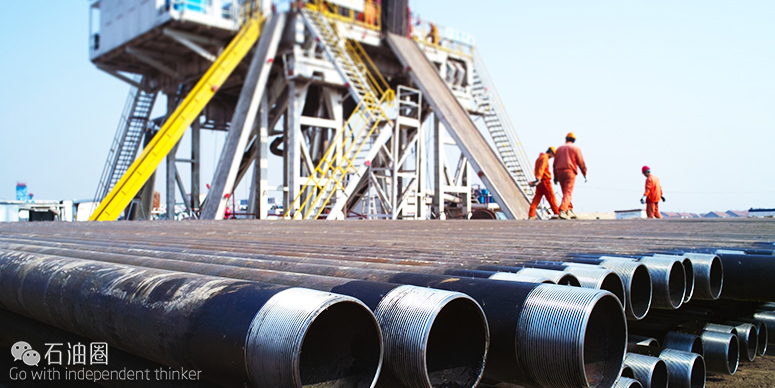DeltaTORQ Rings
DeltaTORQ Rings (DTR) have been engineered to provide additional torque capacity in casing/tubing connections for the upstream market. These new rings are designed to fit all standard API casing/tubing connections, providing a cost-effective, short-lead time, semi-premium connection solution. The DeltaTORQ Ring makes optimal use of the available space in the connection J-section, providing you with more torque capacity and increased retention.
When utilized in tubing strings, the increased torsion capacity can eliminate the need of additional downhole hardware in applications running progressing cavity pumps. Additionally, the smoothed tubing string bore can increase production efficiency, reduce erosion in the J-section and mitigate thread damage during well servicing. Furthermore, by providing a positive torque shoulder, DeltaTORQ rings prevent pin over-penetration, increasing the service life of tubing strings.
DeltaTORQ Rings come in all standard sizes listed in API-5CT. The connections are gauged and the rings installed easily onsite, before or during running operations using a handheld installation tool. Alternatively, as DeltaTORQ Rings have sufficient retention load, they can also be installed prior to running operations in pipe yards and transported to site already installed in the connections.
Issue
Applications where rotating casing or liner string is required, whether it be in drilling applications or difficult casing and liner runs, often require torque that exceeds the torque available from the standard API connection being used.
Non-issue:By making optimal use of the available space in the J-section of API connections, the large cross-sectional area of the DeltaTORQ Ring enables operators to substantially increase the torque capacity of the connection, allowing the string to confidently withstand higher torque loads in rotating applications.
Issue
Downhole progressing cavity pumps apply a reverse torque to tubing connections, which can cause them to back off. Each time a connection backs off down hole, the well needs to be worked over.
Non-issue:DeltaTORQ Rings fit into standard API tubing connections and provide a higher breakout torque reducing the likelihood of the connection backing off down hole. These results in less time and money working over a well and more time spent producing it.
Issue
Tubing connections can yield incrementally with each run resulting in deeper and deeper penetration. When over-penetration occurs, thread damage means the pins must be recut. This is an additional expense many operators would like to avoid.
Non-issue:DeltaTORQ Rings provide a positive shoulder that stops make up at the correct position, time-after-time. By preventing over-penetration, DeltaTORQ rings extend the life of the tubing connections.
Issue
High velocity gas entrains sand and debris traveling along the tubing string which erodes the inside centre section of the coupling (J-section).
Non-issue:Volant’s DeltaTORQ Rings, used in tubing applications, are specifically sized to fill in the J-section of the coupling, creating a smoother flow stream and protecting the coupling from erosion.
MLT Ring – Tubing application, Casing application
When you’re looking for an increase in torque, short lead time and reasonable cost, MLT Rings in conjunction with API connections are the solution. Whether you need to ream casing to bottom, or rotate during cementing, MLT Rings enable success. They work in API connections ‘as-is’.
Problem: Tubing Systems
What: Downhole progressing cavity pumps driven by a shaft from the surface, apply a reverse torque to tubing connections tending to unscrew them. When this happens the well must be worked over.
Solution:Volant MLT Rings fit into standard API connections to increase torsion capacity, eliminating the need for additional downhole hardware. Preventing sand accumulation in the coupling keeps threads clean and extends service life.
Problem: Tubing Running
What: Tubing threads are often screwed together quickly in the high-paced world of well servicing. As a result, the connection is often over torqued and the pin advances into the box further each time the tubing string is run into the hole. When the connection threads are sufficiently deformed, the pins must be recut. This is an expense many operators tolerate, but it doesn’t need to be that way.
Solution:Volant MLT Rings provide a positive shoulder that stops makeup at the correct position time after time. The ring is resistant to over torque and therefore extends the life of the tubing connection.
Problem: Center Section of Coupling (J Section)
What: High velocity gas travelling up the tubing string can erode the inside of the coupling at the J section.
Solution:Volant MLT Rings fill the J section, smooth the flow stream and protect the coupling from erosion.
Problem: Casing
What: Difficult casing runs often require rotation to overcome friction and work past downhole obstructions. Casing rotation requires a top drive, a CRT and connections with adequate torsion capacity.
Solution:Volant MLT Rings convert tapered threaded connections with modest torsion capacity, to tapered threaded shouldering connections with superior torsion capacity.
Problem: Casing
What: Casing threads loaded in compression can ‘jump in’, which compromises both the structural capacity and the seal ability of the connection.
Solution:Volant MLT Rings fill the gap between the pin tips, providing a direct compressive load path to protect threads from overload.

 石油圈
石油圈
